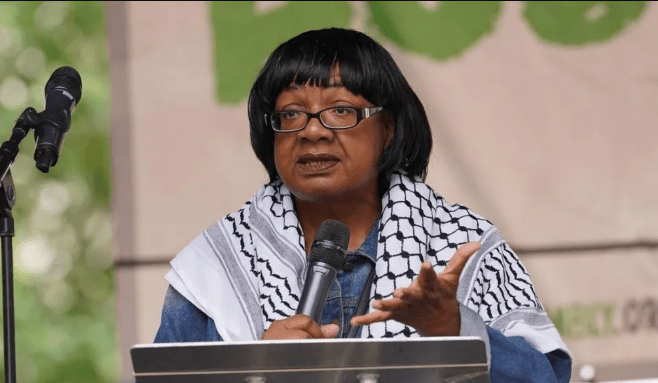Veteran MP insists her views were misrepresented but refuses to backtrack on racial distinctions.
Labour’s longest-serving female MP, Diane Abbott, has firmly stood by the comments on racism that led to her suspension from the party in 2023, stating she has no regrets over the incident.
In an in-depth interview with James Naughtie on BBC Radio 4’s Reflections, the Hackney North and Stoke Newington MP revisited the storm surrounding a letter she penned to The Observer last April.
In the letter, Abbott argued that people of colour endure racism differently from Jewish people, Irish people and Travellers.
Although she promptly retracted her remarks at the time, blaming “errors” in a draft that had been mistakenly submitted, the backlash was swift. Labour suspended her, only readmitting her shortly before the 2024 general election.
When asked by Naughtie whether she looked back with regret, Abbott replied bluntly: “No, not at all.”
Expanding on her original viewpoint, Abbott doubled down: “Clearly, there must be a difference between racism which is about colour and other types of racism because you can see a Traveller or a Jewish person walking down the street, you don’t know.
You don’t know unless you stop to speak to them or you’re in a meeting with them. But if you see a black person walking down the street, you see straight away that they’re black. They are different types of racism.”
She dismissed the notion that her letter contained anything she didn’t believe, saying: “I just think that it’s silly to try and claim that racism which is about skin colour is the same as other types of racism. I just… I don’t know why people would say that.”
When challenged on whether she would condemn antisemitism with the same intensity as racism based on skin colour, Abbott responded unequivocally: “Well of course, and I do get a bit weary of people trying to pin the antisemitic label on me because I’ve spent a lifetime fighting racism of all kinds and in particular fighting antisemitism, partly because of the nature of my constituency.”
Abbott’s original letter acknowledged that Irish, Jewish and Traveller communities face “prejudice” comparable to racism.
However, she controversially added: “It is true that many types of white people with points of difference, such as redheads, can experience this prejudice. But they are not all their lives subject to racism.”
The statement prompted a wave of criticism from Jewish and Traveller groups. Despite issuing a public apology for any distress caused, Labour initiated a formal investigation. Party leader Sir Keir Starmer condemned the letter, calling it “antisemitic.”
An internal inquiry concluded in early 2024, but the decision to readmit Abbott didn’t come until May, just ahead of the general election.
She was given a formal warning and required to complete an online antisemitism awareness course. The party’s National Executive Committee found her behaviour “prejudicial and grossly detrimental” to Labour.
In her interview, Abbott claimed Labour’s top brass had effectively left her in political limbo, even after the disciplinary process was wrapped up.
“In the end, Keir Starmer had to restore the whip to me,” she said, referencing the local support she received throughout the controversy.
“We had a big rally on the steps of Hackney Town Hall. And in the end, Keir Starmer and the people around him had to back off because of the support I had from the community.”
She accused Labour leadership of attempting to oust her altogether and hinted that she had been encouraged to accept a seat in the House of Lords in exchange for stepping down.
“I was never going to do that. And I’m a Labour MP today, and I’m grateful,” she concluded.
Since entering Parliament in 1987, Diane Abbott has remained a prominent voice on the left of the Labour Party. The first black woman elected to the Commons, she now holds the honorary title of Mother of the House.
Despite decades of activism, Abbott continues to court controversy. Her comments on race may have sparked a political firestorm, but she shows no signs of softening her stance.
The debate over her views reflects wider tensions within Labour—between a leadership keen to project zero tolerance on antisemitism and a grassroots base that remains deeply loyal to Abbott’s legacy and left-wing ideals.






